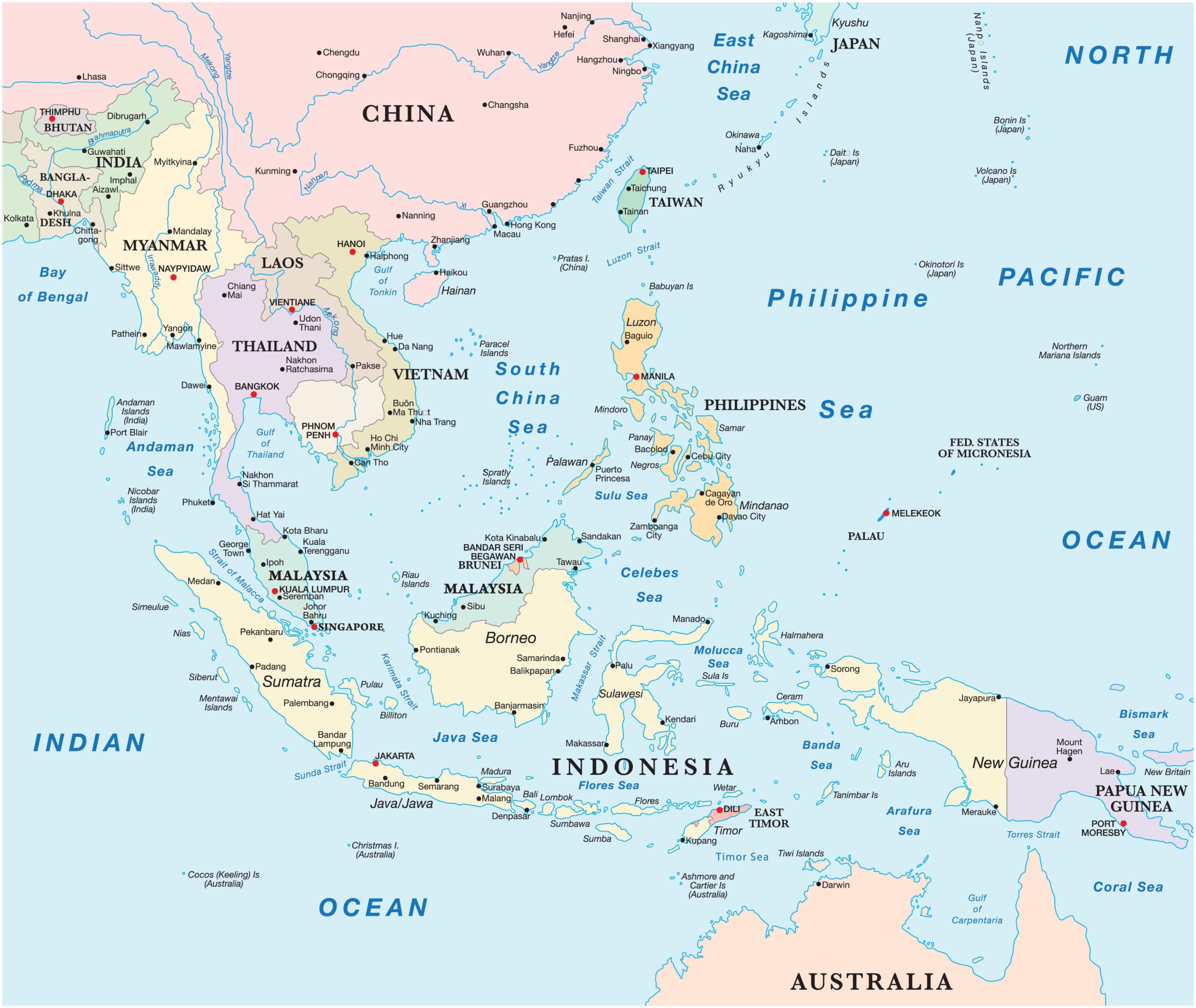 Map of the states of southeast Asia. [photo contributor: Rainer Lesniewski/ Alamy Stock Vector]
Map of the states of southeast Asia. [photo contributor: Rainer Lesniewski/ Alamy Stock Vector]
[This is an excerpt from an article in The Round Table: The Commonwealth Journal of International Affairs.]
The Government of India has, it is reported, decided to build a huge naval facility on the 5 island of Great Nicobar as a retaliatory measure against China. With respect to the Malacca Strait, India has always held a strategic advantage over China. The Great Nicobar is the largest of the Nicobar Islands in India and it looks out over the entrance to the Malacca Strait. For India’s new maritime policy, this base is essential as part of measures to restrain Chinese aggressiveness in the country’s border regions to the north and east. 10 China has made great efforts to maintain its regional importance so that it can exploit the Strait of Malacca to make incursions into India’s immediate neighbourhood in the Indian Ocean. For the past decade, China has been expanding its naval presence and constructing ports in an effort to establish supremacy in the region. In addition, it has attempted to militarise uninhabited islands.
China and the danger of local wars: Why India should be cautious
India’s place in America’s world under the Biden presidency: Decoding the China factor
India–China relations – the present, the challenges and the future
Almost eighty per cent of China’s oil supply travels across the Indian Ocean, making this region crucial to China’s energy security. The Chinese have been harassing the other states in the region for years in an effort to gain complete control of the area. The Strait of Malacca is a narrow body of water linking the Andaman Sea and the South China Sea. It is one of the most important shipping lanes in the world, carrying 25% of global trade and 20 more than 60% of China’s trade. This is the lifeline of China’s economy.
What measures does China take to protect this vital economic conduit? The Malacca Strait and its environs are the target of its attempts to militarise the region. For China to reap the full economic benefits of controlling the trade channels, it has adopted the String of Pearls policy. To maintain control over the sea lanes, it sets up naval bases all 25 throughout the Indian Ocean and beyond, imposes its will on other countries’ trade channels and spies on rivals like India. Strategically, this is where India’s proposed naval base is most useful, as the freedom it provides for other countries to counter China’s dominance is invaluable. Second, it will help to monitor the many Chinese spy ships that cruise the area. It will also, thirdly, be useful in cutting off China’s shipping lines in the 30 event of a conflict. To restrain China, this would necessitate the backing of other South Asian countries.
The question is whether or not other south Asian countries will stand by India in times of crisis. ‘Why not?’, one might ask. Nearly every nation in the region of the Indian Ocean that borders China is currently engaged in a conflict with China.
Kriti Chopra Department of International Studies, Political Science and History, Christ University, Bangalore, India.



